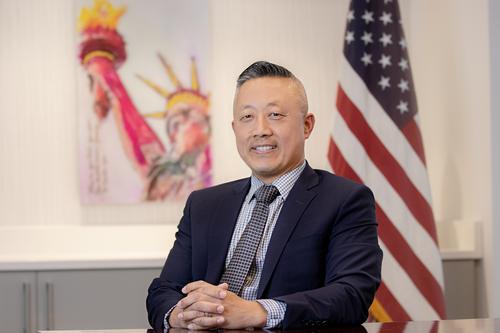The death of one resident from the country of Liberia in a Dallas, Texas hospital has led a number of United States politicians to call for an outright ban on travelers from countries that have been affected by the Ebola crisis, citing safety concerns.
Patient Zero
Thomas Duncan, the Liberian citizen who died from Ebola on October 8 at Texas Health Presbyterian Hospital in Dallas, did not travel directly from his home country to the United States. He originally landed in Brussels, Belgium before leaving to fly to Washington, D.C., where he then flew to Dallas on September 20.
Duncan had first sought treatment on September 25, but was released from the hospital, despite telling hospital workers that he had abdominal pains and had traveled from Liberia. He returned to the hospital two days later, but not after coming into contact with other people, who were subsequently monitored.
Politicians And Opinion Polls
The politicians calling for the travel ban were responding in part to a poll conducted by the Washington Post and ABC News, which indicated that nearly two-thirds of Americans were concerned about a potential epidemic of the deadly virus, while 91 percent were in favor stricter screening for residents traveling from West Africa. In addition, the number of Americans who felt that more needed to be done to stop the potential spread of the disease was nearly twice the number who felt the United States was doing enough.
The U.S. Government Response
The Obama administration has taken steps to limit the chances of an outbreak by beginning screening procedures at five major international airports (New York’s Kennedy Airport; Newark International; Dulles International in Virginia; Chicago’s O’Hare and Atlanta’s Hartsfield Jackson) within the United States. Travelers who arrive from any of the affected countries are asked to fill out a questionnaire and contact information sheet for airport authorities and have their body temperature taken. Any of those travelers with a fever are immediately put into quarantine and monitored by the Centers for Disease Control (CDC), while encouraging the unaffected traveler to seek health care at the first sign of illness. Government officials have conceded that those conditions would not have prevented Duncan from continuing his journey.
The Department of Homeland Security has also established measures to follow similar procedures with travelers from either Liberia, Guinea or Sierra Leone, the three countries most affected by Ebola, who arrive by either land or sea. They also re-route any flight from one of the affected countries to one of the five airports listed above.
Anxiety Trumps Reality
The majority of health experts strongly disagree about the idea of such a ban, saying that the sense of anxiety has actually been larger than the threat. They note that only 150 of 275,000 international travelers (less than 0.1 percent) that arrive at American airports every day come from one the three most affected countries.
A Fix That Makes Things Worse
With the disease still a problem in those countries, CDC Director Tom Frieden has stated that introducing a ban would make it hard for American emergency workers already helping fight the disease to return home. That, in turn, would likely discourage any more emergency workers from attempting to travel to West Africa to administer medical supplies and needed treatment. “The way we’re going to reduce risk to Americans is to…stop Ebola at the source in Africa. If we do things that unintentionally make it harder to get that response in … [it will] become much harder to stop the outbreak at the source.”
Historical Perspective
A study during the Asian avian flu epidemic a decade ago could likely be cited as a precedent for not instituting such a ban. The number of studies commissioned by the administration of George W. Bush found that a ban on air travel would deliver weak results and actually do more to interfere with the transport of health workers and supplies.
What’s Next?
American politicians are calling for a ban of travelers from Ebola-stricken countries, but the United States has instituted a stricter policy when such travelers reach the country. How this will affect medium and long-term immigration matters is at this point uncertain.
Are You In Need Of An Immigration Attorney In Virgina, Maryland or Washington D.C.?
If you find yourself facing immigration issues you need to speak with an experienced immigration lawyer as soon as possible. Please contact us online or call our Vienna, Virgnia office directly at 703.991.7978 or our Rockville, Maryland office at 301.637.5392 to schedule your case consultation.

